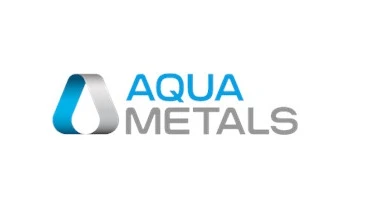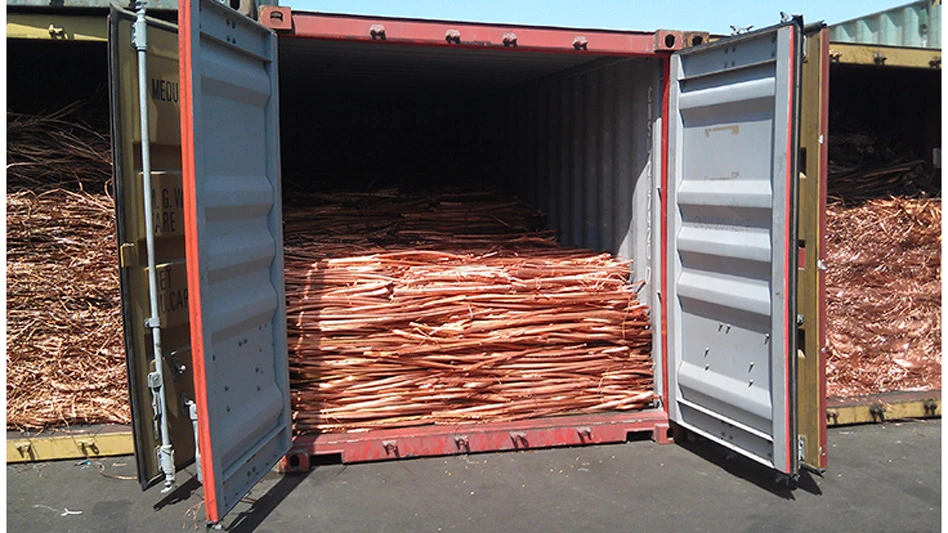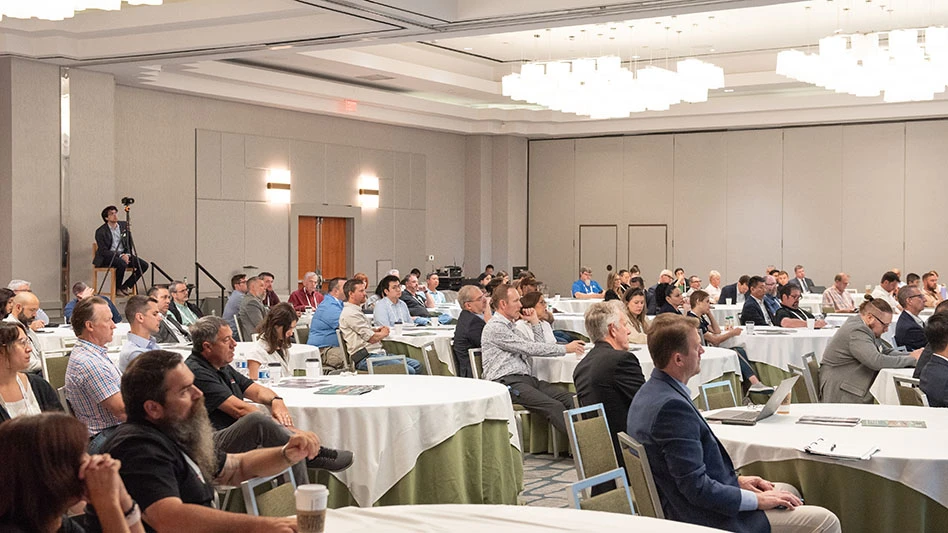Even with recent reports of a slight softening in the demand for recovered fiber, the last decade has seen steady increases in the use of recycled paper. Growth of the secondary fiber industry will clearly continue well into the next century. And while increased demand for recovered fiber has come about due to government mandated recycling programs and industry response to consumer needs, the continued success of fiber reuse industries depends on well-planned and creative responses by recovered paper processors – large and small – to the diverse and changing conditions of the marketplace.
This article provides a look at two very different paper processing companies in the Philadelphia area and examines how they are adapting to market forces, as well as highlighting new directions in which these companies are heading as they plan for success in the next century.
BEST OF BOTH WORLDS
United States Recycling Inc. is a prime player in the regional Mid-Atlantic recycling economy – brokering, collecting, and accepting across its scales more than 100,000 tons a year of pre- and post-consumer fiber. About 75 percent of the material the company handles is sold to mills all over the country. The other 25 percent is moved next door to Newman & Co., a paperboard mill located on the banks of the Delaware River in Philadelphia.
Newman & Co., owned and operated by the Newman family, has been using 100 percent recycled fiber for nearly 80 years. The 26-acre mill, with its own cogeneration power system, numerous 40-foot trailers, trucks, bobcats, front-end loaders, sorting stations, tipping floors and offices, manufactures everything from tablet backing to game boards to the paperboard for packaging special boxed sets of vintage CD recordings. The primary feedstock is still recovered paper, just as it was when the company started out in 1918. But for the last 13 years, much of it has been collected and processed by USRI.
"In essence, we have the best of both worlds," explains Melvin Lapin, USRI president. "We’re vertically integrated with the mill in that we’re on the same property and they are our best customer and our best strategic partner, but at the same time we have a relationship with another 25 or so mill buyers throughout the country. We pay our own bills, run our own shop and decide how we will deal with each of our customers."
USRI packs 15 different grades of fiber and is clearly diversified in its approach to recycling markets. In the first decade or so of operation, USRI was primarily a pre-consumer packer of high grade recovered paper and industry scrap. But over the last several years, as the local recycling economy began to respond to government recycling regulations, the company has expanded the post-consumer side of its operations considerably. Beginning during the market boom in 1994 and 1995, USRI responded to Philadel-phia’s comprehensive commercial recycling regulations by aggressively marketing its collection services to large area development firms and property management companies.
Even with the depressed paper market situation of the last two years, Lapin and Tim Skammer, USRI’s vice president of sales and marketing, are optimistic about the company’s foray into enhanced post-consumer collection services. "We don’t control the market, we simply respond to it," says Skammer.
When Philadelphia’s commercial recycling regulations went into affect in 1994, Skammer had just joined the company and was a rookie in the world of recycling. At that time the word from some in the industry was that municipal recycling had "made it" and the sky was the limit. It didn’t take long for Skammer to learn that in the scrap industry nothing lasts forever.
"When I came on board," he says, waving his hand at some 20 bales of primarily white office paper stacked 15 feet high, "sorted mixed office paper was supposed to be the material of the future. Right now we’re losing money on it."
But while the company’s post-consumer business is taking a hit, USRI recently has been marketing its brokerage service to more than 100 mills throughout the country. "Market or die," says Skammer. "We sent out mailers last month and we’re already seeing a strong level of response. We’ve got to remind people we’re here and we’re selling product."
UNIQUELY POSITIONED
USRI was somewhat uniquely positioned in the Philadelphia marketplace to take advantage of a special exemption rule that the city’s regulations allowed. All commercially serviced buildings in Philadelphia are required to develop comprehensive source separation recycling programs unless they use a hauler who is able to take their trash away and separate the recyclables from the trash at a state-permitted waste processing facility. While the three other sites in the area offering this service were originally set up to handle trash accounts, USRI, thanks to the foresight of Newman and Lapin, is the sole "recycling only" processor with such a permit. Because USRI is not set up to handle trash, company officials are very particular about the material that is dumped on their tipping floor.
"We’re looking for paper-rich generators," says Skammer. "It’s a tough market right now, but you’ve still got to be choosy. We’re doing our best to cherry pick our customers. If we lose some accounts because they can’t meet our standards, then we’re willing to let the market forces come into play."
When the company receives a load from a Philadelphia account that is contaminated with construction and demolition debris, wet garbage or other hard to handle materials, it is carted off to local trash transfer station and the customer is billed accordingly. And with markets expected to hold at near all time lows for the rest of the year, Lapin and Skammer know that the issue they must always deal with is quality. The higher the quality demanded by end-users of paper stock, the higher the cost to them to processing their customers’ loads.
During the last several years, USRI has increased its post-consumer business dramatically, adding scores of large office buildings and corporate centers. To service these mixed office paper accounts, it scrapped its old twin vertical pit balers and invested in a new horizontal baler. Newman & Co. followed suit by installing a raised picking station that can be staffed by as many as 12 people in order to clean up the exempted office paper before it is pushed into pulping vats for use by the company’s on-site paper machine.
BROKERING BUSINESS
It is the brokering side of the business, though, that is keeping USRI going these days. Lapin says the company operates under three very important principles: always provide quality, timely service – don’t skimp; price your products fairly; and pay your bills promptly. These principles are not only directed at themselves but are expected of their customers as well. The company is careful who they sell to. The basis of its continued success, even with soft markets, is its dependence on core business relationships with mills who understand the need to take care of USRI, the same way the company tries to take care of its mill customers.
As a vertically integrated system, the United States Recycling/Newman & Co. partnership provides a unique perspective into the economics of paper recovery and manufacturing. In essence, the middleman broker is out of the picture, but the margins the company must deal with are still tight and real. "We’re competing intensely on the local level," notes Newman.
In fact, there are very few independent companies left in the Philadelphia region. Just 10 years ago, there were 20 to 30 independent waste and recycling companies of significant size. Today, most of them have been acquired by the large waste management companies. USRI is one of only a handful left. Skammer and Lapin readily admit that the close relationship with Newman & Co. is the reason they have survived.
When asked whether recycling is sustainable over the long haul, Lapin doesn’t hesitate. "It’s the global economy," he says. Right now, he notes, some people seem to have lost interest in buying recycled paper. Purchasing decisions by law firms and corporations, for example, generally seem to be focused on the highest quality for the lowest cost. For paper it all too often comes down to a brightness factor.
"People want numbers in the high 80’s," says Lapin. "Recovered pulp is generally in the high 70’s or maybe in the low 80’s. It’s more difficult for recovered pulp to compete if someone is looking for the brightest white paper."
He points out that even buyers set up in North America by overseas paper companies can’t move product out of the U.S. and Canada. "With virgin pulp at the same price as recovered pulp, or even lower sometimes, and with a number of export markets shut down to most of us, the game is being played on the domestic level."
The current state of supply and demand allows the company’s customers to dictate the prices they are willing to pay, says Lapin. "It’s a buyers market," he says. "Our mill customers tell us what they want and how much they will pay and we go and find it."
The company’s investment in picking stations and new baling equipment allows it to be as efficient as possible, but even margins on pre-consumer waste are slim. This, along with the company losing around $9.00 a ton to its post-consumer accounts, means that profits aren’t what they should be.
"We’re in this for the long haul," says Skammer. "It’s kind of a painful truth, but your opportunities come about when things are toughest. We know the use of recycled paper is down a bit from 1995, but demand for wood fiber is down even further. The point is to always remember that this is a dynamic and exciting business. United States Recycling has been successful because we’re entrepreneurs. We take risks, we’re creative and we think long-term."
DESIGNER RECYCLING
The first thing you notice when you walk into the small front office of Recycling Express/Paper Chase is that every desk has a Macintosh computer on it. As part of the new breed of micro or boutique recycling companies, Recycling Express was founded with the idea that they are a service company and that the way to differentiate themselves from their large competitors was to provide a significant amount of value added. The company’s seven networked Macs provide what is the heart of their value-added service – information.
While Paper Chase - the processing arm of Recycling Express - handles roughly 4,000 tons of predominantly post-consumer paper a year, company executives pride themselves that none of their 400 customers ever has a question about how much they are recycling.
"When it’s time to invoice our customers, I’ll stay up all night to make sure they get a bill that is on time and that is based on clear tonnage information," says Paul Bickhart, president. "I want them to know exactly how much they have recycled and, hopefully, how much money they saved in trash disposal costs."
Recycling Express was started by Bickhart and partner David Smith more than six years ago. Bickhart had worked as a local county recycling coordinator and then as a manager in several independent processor/packing companies before deciding he would be most successful in business for himself. Smith’s background includes stints as vice president for development in a Philadelphia-area energy service company and then expansion into radon mitigation. He came to recycling via a natural outgrowth of his work in these other highly customer-oriented environmental businesses.
The goal of Recycling Express is to be a niche market player and to focus on its clients’ business needs as much as possible. This work paid off handsomely over the last several years when it landed a large manufacturing account. By paying close attention to this customer’s needs, the company has converted a small corporate office paper collection program into a toll account where it receives all waste fiber from the company’s entire manufacturing complex. As a toll service, Recycling Express receives, processes, packs and markets its client’s material on a fee-for-service basis. Proceeds from the marketing the material are returned to the client.
In order to handle these special needs, Bickhart and Smith have set their processing plant up with a dedicated loading dock for this large client and have guaranteed them confidentiality and security in the handling of all their material.
As large as that account is, Recycling Express officials still plan to remain what they call a "run and dump" company. By blending a number of hospital and office complex customers with cost-effective service to small businesses in the Philadelphia suburbs, the company is able to deal with changing markets effectively. It runs three large box trucks and handles three main grades of paper: sorted office paper; old corrugated cardboard; and high grade white. Its range of service is several hundred miles in diameter with customers all over the Mid-Atlantic region, and company officials view their company as primarily a fee-for-service recycler in the business of upgrading paper for sale to end users and brokers.
Besides providing accurate accounting of paper recovery to its customers, Recycling Express also offers customers confidential document handling, special materials consulting, bottle and can recovery systems, plastics processing, textile recovery, and ongoing in-house education for both employees and environmental service personnel.
PAPER CHASE
During the market boom of 1994 and 1995, Smith and Bickhart had the opportunity to acquire a small paper packing company called Paper Chase located north of Philadelphia. Over the last several years, the company’s profits have been reinvested in upgrading Paper Chase to allow for more efficient processing and handling of fiber and to continue to adapt to its customers’ needs.
Paper Chase recently moved into an enclosed industrial park building in Montgomeryville, Pa. The company has roughly 12,500 square feet of space. It operates a small, high-density Excel 60 single-ram horizontal baler and currently hand sorts most of the fiber baled. The company is waiting for markets to turn just a bit upward so that it can invest more in this small baling system to make it more automated.
Between them, Recycling Express and Paper Chase employ seven people, and Smith and Bickhart pride themselves on a low employee turnover rate. The goal of automation to them is to be able to work smarter and faster without compromising quality.
"Our mill customers know they won’t find any surprises in our bales," notes Smith. "You don’t want any wheat in your corn when you’re making corn flakes."
Even though they strive for high-quality service, officials at Recycling Express have seen tough times over the last year and a half. When the market turned, they had just moved into their Paper Chase facility and were still getting the bugs out of their new enterprise. As a fee-for-service paper recycler, they were able to provide voluntary rebates to their customers in 1994 and early 1995, but by the summer of that year they were forced to go to their customers and explain the situation. Plans for a big marketing push were also put on the back burner.
"Right now we’re doing very little broad-scale marketing,’ says Smith. "We’re working on a limited target marketing strategy and playing our cards close to the vest." The company is seeking to increase route densities but is also having to let some customers go. For now at least, Paper Chase is breaking even and Recycling Express, by working carefully with customers, is still operating on a fee-for-service basis.
The next several years are likely to be challenging, says Smith. "Anyone in this game ought to have his head examined," he quips. "Mills and deinking facilities that were supposed to be up and running months ago are still sitting idle. 1997 is going to be a tough year for anyone who isn’t careful. The key is making sure your customers understand the situation."
LEAN AND MEAN
Until paper markets turn around, United States Recycling and Recycling Express both demonstrate that a combination of creativity, service, diversity, and working "lean and mean" is key to survival. USRI is a continuing success in the Philadelphia area because it has a diverse portfolio of paper grades, is careful and has a strong strategic partnership with Newman & Co.
Recycling Express is successful because it has focused on providing high-quality specialty services to its customers and because it has kept its business on a manageable scale. Both companies have also demonstrated a commitment to strategic marketing and realistic planning in a tough market environment.
USRI’s Lapin says it best. "When times were great in 1994 and 1995, even those who did not know what they were doing in this business made money. In addition, paper recyclers got themselves out of debt, upgraded their equipment, and expanded their marketing efforts.
""Now the market is not so good, and it is the time to divest yourself of bad business and to operate down to the bone," he continues. "1995 was great. 1996 was bad. Will 1997 end up being good to us? No. Will 1998? Maybe."
The author is a freelance writer and environmental consultant based in Philadelphia.

Explore the May 1997 Issue
Check out more from this issue and find your next story to read.
Latest from Recycling Today
- USTR announces phased measures designed to address China’s shipbuilding dominance
- APR, RecyClass release partnership progress report
- Clearpoint Recycling, Enviroo sign PET supply contract
- Invista expanding ISCC Plus certification program
- Redwood partnership targets recycling of medium-format batteries
- Enfinite forms Hazardous & Specialty Waste Management Council
- Combined DRS, EPR legislation introduced in Rhode Island
- Eureka Recycling starts up newly upgraded MRF







